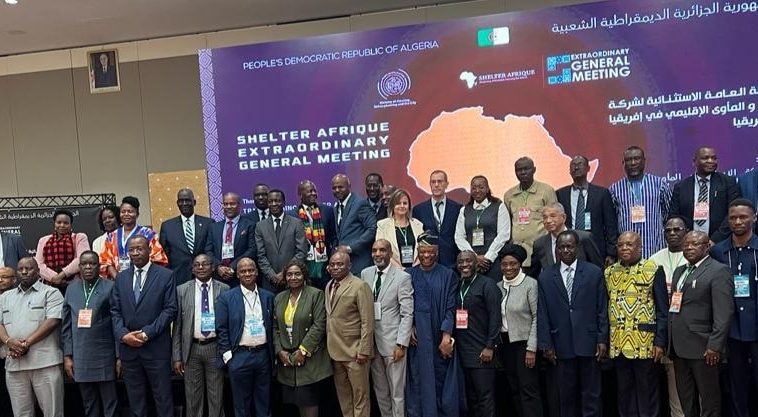Over the years, Africa has struggled with a steady rise in violent extremism, with an increase in attacks on civilians in recent years. This trend has made it clear that the continent needs a continental strategy to confront the complicated security environment it is currently faces. The security issues are numerous, complex, and regional in nature, and each one necessitates a unique approach in order to maintain peace and stability. This article delves into the security challenges in Africa and their effects on the continent.
NORTH AFRICA
The security challenges in North African countries have been continuously getting worse, especially since the 2011 popular upheavals. The ongoing conflict in Libya stands out as a major obstacle for North Africa, which has evolved into a complicated interaction of political and military factions.
The continuous conflicts in Mali and the Sahel, as well as the dangerous presence of extremist groups like Boko Haram and ISIS, have made the security situation in North Africa a critical issue. Given this perilous scenario and the constant string of attacks carried out by terrorist groups, which significantly destabilise the region, it is difficult for governments to uphold peace and stability.
Terrorism and extremism
Because of the internal strife in Libya, terrorism and extremist ideas have flourished. ISIS, Al-Qaeda, and Ansar al-Sharia have all found refuge within the boundaries of Libya. This has resulted in the alarming infiltration of foreign jihadists into nearby nations like Tunisia, igniting internal strife and committing atrocities against defenceless citizens.
Regional Instability, the Ripple Effect, and Border Implications
The instability in the region has been aggravated by Libyan combatants’ engagement in interstate conflicts, particularly in Mali, Chad, and Sudan. The security and peace in the affected areas are seriously threatened by the spread of violence and the eventual return of mercenaries to their home nations.
Egypt faces an urgent security issue as a result of the turmoil in Libya, especially along its western border. The security dangers Egypt faces are increased by the growth of mercenaries supported by Turkey in Libya and a likely military intervention in Syria.
The situation is reminiscent of the dangers posed by Al-Qaeda’s terrorist allies, Al-Mourabitoun and Ansar al-Islam. Due to its arid terrain, which serves as a desirable safety for militants, Egypt’s vast Western Desert stands out as a key security worry. Further complicating Egypt’s security situation is the fact that this distant area has emerged as a new battlefield in the war against terrorism.
Illegal Trade and Human Trafficking
Illegal operations, including human trafficking, the smuggling of weapons, and illegal trade, are all consequences of the internal conflict in Libya. An enormous influence on the security environment has been caused by the extensive dispersion of weaponry from Libya into nearby countries. Furthermore, trafficking organisations that take advantage of the unrest in Libya are a major factor in the humanitarian situation.
WEST AFRICA
Terrorism, extremism, and violent insurgencies
After the 2011 Libyan civil war came to an end, northern Mali became the starting point of the Sahel conflict, which began to worsen in early 2011. In 2015, the conflict’s spillover from Mali into Burkina Faso began to take shape through terrorist assaults spearheaded by Boko Haram. A number of extremist organisations, including Boko Haram, ISWA, killer herdsmen, and IPOB, are committing widespread crimes that are displacing and killing civilians. These organisations operate in both urban and rural regions, posing a threat to security.
The Sahel Conflict’s Significant Effects
The Sahel conflict has had a lasting impact, with the loss of life being a notable and catastrophic result. In Burkina Faso, Mali, and Niger, the number of deaths from combat and other causes has increased drastically.
The number of internally displaced people, both inside the Sahel region and toward neighboring countries, has increased significantly as a result of the migratory crisis brought on by violence. Economic migration has increased as a result of fewer opportunities and means of subsistence in conflict-affected areas, placing tremendous pressure on regional stability.
Cross-Border Insecurity
Extremism and transnational crime are crossing boundaries, underscoring the necessity for a coordinated regional strategy for security. Border regions are particularly susceptible to these spillover effects. With a noticeable increase in attacks starting in 2017, the conflict in Niger widened. Benin, Côte d’Ivoire, Ghana, and Togo are just a few of the nearby nations that have experienced violence and strife.
Political instability and coups
Constant political unrest has resulted in military takeovers, upending democratic procedures and governmental frameworks, thereby threatening the ability and conformity to the law as set forth in the constitution, as they are gravely threatened by this.
Identity-Based Violence
As a result of the increase in violence, identity-based violence has emerged, resulting in a spike in deaths, evictions, hunger, and cruel treatment, particularly affecting weaker groups like women and children.
CENTRAL AFRICA
Persistent violence in countries like Cameroon, the Central African Republic, and the Lake Chad basin remains a significant security challenge, affecting both civilians and security forces.
Boko Haram and regional insecurity
There have been more Boko Haram-related incidents in Cameroon and Chad, which have resulted in civilian casualties and show the persistent threat of terrorism in the area. The problem has worsened as a result of the activities of Boko Haram and the consequences of climate change.
Inter-communal Conflicts
Increasing conflicts between nomadic herders and the local communities have killed a significant number of people and increased security worries.
Humanitarian Crisis and Internal Displacement
The Lake Chad basin crisis has resulted in significant internal displacement and driven a sizable number of individuals to seek safety in neighbouring nations. As a result, immediate assistance and action are required because the humanitarian situation is still dire.
EAST AFRICA
Terrorism and violent extremism
Terrorism poses a serious threat to regional security, with Al-Shabaab being a particular danger. It has been shown that terrorism has many facets and is influenced by economic, political, and religious elements; therefore, adopting holistic methods is essential for successful counterterrorism strategies.
Election-Induced Violence
Small Arms and Light Weapons (SALW) Proliferation
SALW proliferation is recognized as a serious concern that is made worse by issues including resource competitiveness, governance shortcomings, and socioeconomic and political marginalization. The issue is made worse by the existence of illicit weapons, which are supported by outside players, porous borders, and cross-border operations by private military security companies (PMSCs).
SOUTHERN AFRICA
Political instability
Political instability in South Africa has contributed to social tensions and rare incidents of violence, which frequently result from economic inequalities and historical legacies. Similar internal political challenges affect the stability and growth of Zimbabwe and are characterised by problems with democracy and governance.
Extremist organisations
In addition to handling resource-related conflicts, Mozambique must also fight insurgencies like those carried out by extremist organizations in the country’s north. Along with endangering lives and livelihoods, these conflicts also prevent investment and economic growth.
Migration
Migration, both internal and across borders, is a pressing concern throughout the region. Economic disparities, political instability, and conflict often force individuals and families to seek better prospects elsewhere. This movement can strain resources and services in both host and origin areas, leading to tensions and potential conflicts.
The security environment in Africa poses a challenging situation with many different facets. The continent faces numerous security threats, ranging from terrorism and insurgencies to political instability and transnational crime. African countries must come together to seek a way forward for the peace and security of the African continent.


